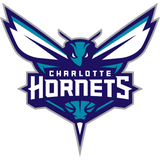
Charlotte Hornets: How Is Michael Kidd-Gilchrist's Jumper Developing?
Charlotte Hornets wing Michael Kidd-Gilchrist has always been a lock-down defender. Is his jump shot finally improving this season?
The description of Michael Kidd-Gilchrist when he was a freshman at Kentucky was that he was a high-energy, defense-first player that would work hard to carve out a niche for himself as a role player in the NBA. If he ever developed a jump shot he would go from role player to star.
The Charlotte Hornets (then named the Bobcats) drafted him second overall in the 2013 NBA Draft. When healthy, Kidd-Gilchrist has been exactly what draft experts said he would be.
He’s a rabid defender, a good cutter and is starting to show a nifty post-up game when he takes smaller players down low. He’s an impact player on defense and does just enough on offense to be a valuable member of Charlotte’s starting five.
He’s an important cog on a Hornets team that is looking to be a perennial participant in the NBA Playoffs. But, what about that jump shot? There has been reason for optimism in the last few seasons.
In the summer of 2014, former Hornets assistant coach Mark Price was credited with rebuilding his shot from scratch. Here is what Price said about Kidd-Gilchrist’s reformed jumper in a piece by Rick Bonnell of the Charlotte Observer that same off-season.
“I told everyone in management this was going to be a process,” Price said, invoking the magic word.
“I always knew this was going to be a big summer for Mike and I give him a lot of credit. We started in May and really broke some things down. He listened, he applied it and the biggest part is he stuck with it. We all know when somebody is making some changes there are tendencies to slip back.”
That season he failed to make a single three-point shot, but he did shoot 37.1 percent from between 16 feet and three-point range. Nothing special, but a definite sign of progress.
Last season he continued to show development, even after Price left to take a college head coaching job at Charlotte.
After tearing his labrum during a preseason game last October, it looked like Kidd-Gilchrist would miss the entire 2015-16 season. Instead, he returned in January looking better than ever.
In seven games he averaged 12.7 points and 6.4 rebounds per game on 54.1 percent shooting and 42.9 percent from three-point range.
The three-point shooting was the most surprising revelation. It was a small sample size–he shot 3-for-7 from deep during that seven-game stretch–but it looked like progress. Kidd-Gilchrist was confidently pulling up from long distance and the shots were going in.
The previous three seasons combined he had shot 3-for-18 from three-point range.
His progress was halted after those magical seven games. He re-injured his right shoulder during an early February meeting with the Indiana Pacers. He would miss the rest of the season.
How has his shooting looked so far this season? The results are mixed, bordering on bad. His three-point shooting is back to non-existent. In 25 games he’s only taken four three-point shots.
He’s missed them all.
The confident stroke he briefly unveiled last season is nowhere to be seen.
He has been more active in taking mid-range jumpers. That shot is a lost art in the modern NBA, probably for good reason.
Long two-point shots are far less efficient than shots at the rim and three-pointers, but Kidd-Gilchrist is clearly trying to develop his jump shot from a distance where he feels he can be most consistent.
More than half–55.6 percent–of his field-goal attempts have come from three feet or less, and he’s shooting 60 percent from that distance. That makes sense. On offense his greatest skill is his ability to cut hard and finish at the rim.
His second-most attempts, 21.7 percent of them, have come from between 16 feet and the three-point line. He’s shooting just 28.2 percent from that range, and 33.3 percent from between 10 and 16 feet. The pull-up jumper has not been falling.
It’s disappointing for a player that works as hard as Kidd-Gilchrist does. Last season he made significant progress in terms of confidence and overall shot-making. An injury seems to have flushed all that down the drain.
The lack of a consistent outside shot has led to Hornets coach Steve Clifford playing Marco Belinelli and his 45.5 percent three-point percentage occasionally during crunch time. That kills Charlotte’s perimeter defense, but positively impacts their offense.
It’s a tough decision on a nightly basis that Clifford will have to balance as the season progresses.
Even if his jump shot never becomes reliable Kidd-Gilchrist still makes a positive impact with his defense and his evolving post game. It’s getting to the point where it feels like this will always be the player he is.
More from Hoops Habit
This article originally appeared on


